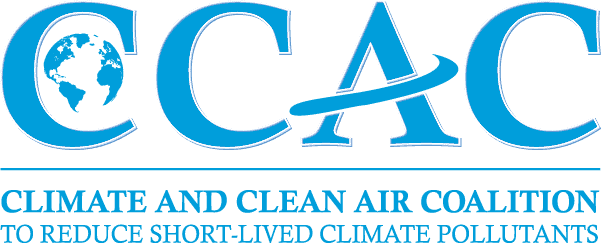

Using the Solid Waste Emissions Estimation Tool (SWEET), in 2020, International Solid Waste Association’s (ISWA) Task Force on Closing Dumpsites completed a study of waste sector short-lived climate pollutants (SLCPs) and other greenhouse gas (GHG) emissions in Tyre Caza, Lebanon. SWEET model runs used data on municipal solid waste (MSW) generation, collection, disposal, and diversion under existing and potential alternative management scenarios proposed in an Integrated Waste Management Plan (IWMP) for Tyre Caza. Waste sector emissions reductions exceeding 45% of baseline levels are achievable by 2030 if all dumpsites are closed and remediated, waste burning is stopped, and a new sanitary landfill is developed with 60% methane collection and combustion. Additional emissions reduction accrues from implementing the IWMP and upgrading existing waste treatment facilities to increase waste diversion rates from current levels (22%, including informal sector recycling) to 40%. Estimates of all of Lebanon’s waste sector emissions using SWEET were developed for this mini-review article using published data on the amounts of MSW collected, disposed, and diverted, with adjustments to account for indirect GHG reductions from composting and anaerobic digestion (AD). A 50% reduction in emissions from baseline levels can be achieved by 2034 if, by 2025 diversion of collected wastes to recycling, composting, and AD facilities are increased from 14% to 28%, and all residual MSW is disposed of in sanitary landfills with 65% methane recovery.
Conclusion: SWEET allows solid waste planners to compare emissions resulting from implementing different programs and to quantify the effectiveness of available waste management options in reducing emissions of GHGs and air pollutants. Full article access is on Sage Journals.
About SWEET: SWEET was developed by the U.S. Environmental Protection Agency (EPA) under the auspices of the Global Methane Initiative and in support of the CCAC. Abt Associates and SCS Engineers supported the development of SWEET. SWEET provides estimates for the full suite of GHG and air pollutant emissions in the waste sector, including methane, black carbon, CO2, nitrogen oxides, sulfur oxides, particulates, and organic carbon (CCAC, 2018). Emissions estimates are provided for the following sources: (1) waste collection and transportation, (2) open burning of waste, (3) landfills and open dumps, (4) organic waste management facilities (composting and anaerobic digesters), (5) waste-to-energy facilities and (6) waste handling equipment. Note that emissions from fuel and waste combustion are the only CO2 emissions included in SWEET’s calculations, which exclude biogenic CO2 emissions from waste disposal sites. Published reports by the US EPA (e.g., EPA, 1998, 2015), Intergovernmental Panel on Climate Change (e.g., IPCC, 2006), and other sources (e.g., SCS Engineers, 2007, 2009; United Nations Framework Convention on Climate Change (UNFCCC), 2004) were used to develop calculation methods and emissions factors for the waste sector emissions sources. CO2e conversions use a 100-year Global Warming Potential (GWP). The black carbon GWP is 900 (Bond et al., 2013).
SCS Engineers is proud to announce its acceptance as an “Actor” in the Climate and Clean Air Coalition to Reduce Short-Lived Climate Pollutants (CCAC). SCS will participate in the CCAC’s initiative to mitigate Short-Lived Climate Pollutants (SLCPs) from the Municipal Solid Waste sector.
The CCAC is a voluntary international framework that encourages countries and organizations to take concrete steps to reduce SLCPs in order to protect the environment and public health, promote food and energy security, and address near-term climate change. The initial focus is on methane, black carbon, and many hydrofluorocarbons (HFCs). Fortunately, as their name indicates, SLCPs have a relatively short lifetime in the atmosphere, and therefore determined efforts to mitigate them now can significantly reduce their concentrations in a relatively short period of time. Many cost-effective technologies and practices have already been implemented in key sectors around the world and benefits are being seen.

The Coalition sponsors eleven initiatives designed to address urgent environmental challenges through collective and individual partners’ action. Some of the initiatives include: reducing black carbon emissions from heavy-duty diesel vehicles and engines; promoting HFC alternative technology and standards; addressing short-lived climate pollutants from agriculture; supporting national planning for action; financing mitigation of SLCPs; regional assessments; and urban health.
Founded in 2012, the CCAC is the first global effort to address the urgent challenge of SLCPs. The Coalition encourages all countries, regional economic integration organizations (REIO), intergovernmental organizations (IGOs), non-governmental organizations (NGOs), and private sector entities that are committed to solving this global and collective challenge to participate in its initiatives. To date, 48 countries, 14 IGOs, and 43 NGOs participate in the CCAC.

Upon receiving the letter of acceptance, SCS Vice President Dana Murray said, “We are pleased to be approved as an Actor and believe this initiative makes a difference in the human health and environment of the cities it assists because it looks at improving municipal solid waste management holistically at the local level.”